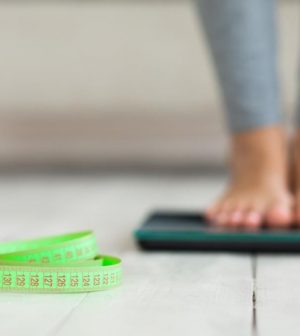- Could Your Grocery Store Meat Be Causing Recurring UTIs?
- Are You Making This Expensive Thermostat Error This Winter?
- Recognizing the Signs of Hypothyroidism
- 10 Strategies to Overcome Insomnia
- Could Artificial Sweeteners Be Aging the Brain Faster?
- Techniques for Soothing Your Nervous System
- Does the Water in Your House Smell Funny? Here’s Why
- Can a Daily Dose of Apple Cider Vinegar Actually Aid Weight Loss?
- 6 Health Beverages That Can Actually Spike Your Blood Sugar
- Treatment Options for Social Anxiety Disorder
GLP-1 Weight-Loss Meds Won’t Raise Teens’ Suicide Risk, May Even Lower It

As with any new drug, parents and doctors may worry that the use of GLP-1 weight-loss meds by children and teens might raise psychiatric risks, including the risk for suicide and suicidal thoughts.
But a new study involving more than 54,000 U.S. adolescents found no such link.
In fact, obese kids who used the drugs had a 33% decline in their risk for thoughts of suicide and suicide attempts compared to adolescents who didn’t, Israeli researchers reported.
There could be many reasons driving the boost in mental outlook that comes with the use of drugs like Wegovy (semaglutide), said a team led by Dr. Liya Kerem, of Hadassah University Medical Center in Jerusalem.
One is pretty straightforward: “Obesity during adolescence, by itself, is associated with diminished quality of life and increased risk for psychiatric disorders,” the researchers noted.
So, as GLP-1 medications help teens shed pounds, their risk for thoughts of suicide may recede.
The findings were published Oct. 14 in the journal JAMA Pediatrics.
Sales of GLP-1 weight-loss medications like Wegovy and Zepbound (tirzepatide) have boomed among adults, and with 1 in every 5 U.S. children now obese, the drugs’ uptake by adolescents is also surging.
However, Kerem’s team said the data on whether or not GLP-1 meds might trigger depression and other psychiatric issues has been mixed.
“Suicide is the second most prevalent cause of death in youth,” the researchers also noted, “with 18% of high school students reporting suicidal ideations.”
So, they believed that research into possible psychiatric dangers from GLP-1 meds among youth was overdue.
The research team tracked rates of suicidal thoughts (ideation) among a group of more than 54,000 12-to-18-year-olds, all of whom were obese.
A total of 4,052 of these kids were taking an injected GLP-1 weight loss medication such as Wegovy or Saxenda (liraglutide), while the other 50,112 were not.
Of the two drugs tested, “psychiatric events” were less likely among those taking Wegovy compared to those using Saxenda, perhaps because Wegovy tends to spur greater weight loss, the researchers said.
Wegovy, especially, “was associated with improved weight-related quality of life” among the adolescents who received it, Kerem’s team said.
They stressed that the study was not designed to prove that use of a GLP-1 actually caused any decline in suicidal thoughts.
However, besides the fact that healthy weight loss might brighten a teens’ mood, the researchers pointed to prior studies that have suggested that GLP-1 meds have a positive influence on brain chemistry.
“Future prospective studies” should examine possible mechanisms that might allow GLP-1 meds to ease psychiatric symptoms in adolescents, the Israeli team said.
If you or a loved one are experiencing a suicidal crisis or emotional distress call the Suicide and Crisis Lifeline at 988.
More information
Find out more about how GLP-1 meds work at the Cleveland Clinic.
SOURCE: JAMA Pediatrics, Oct. 14, 2024
Source: HealthDay
Copyright © 2026 HealthDay. All rights reserved.










